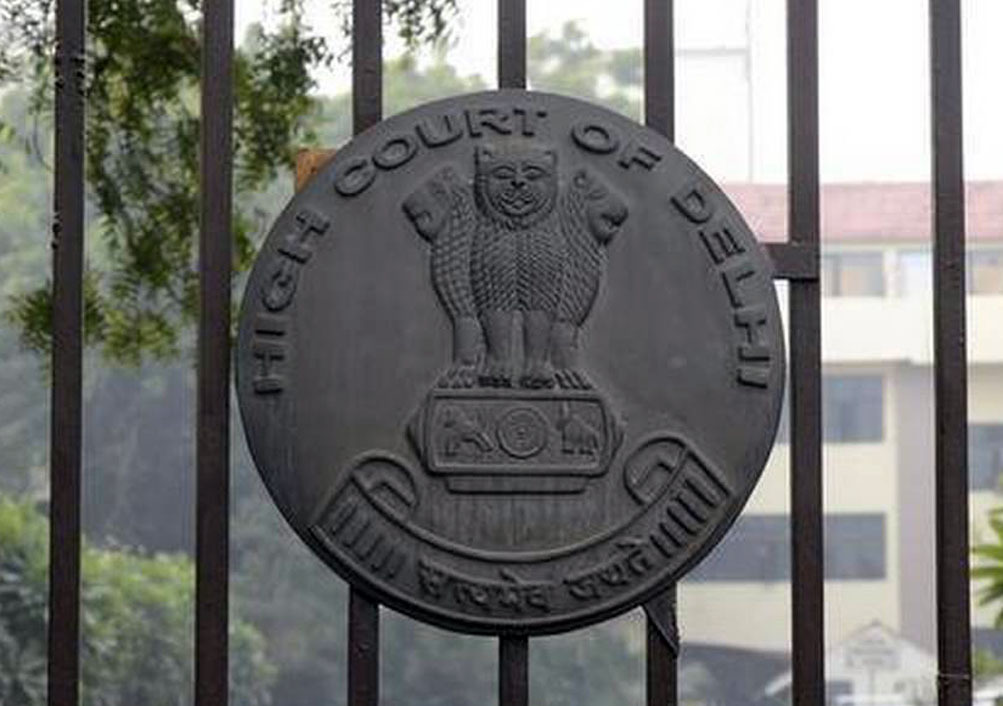InCUSAA 2/2022 -DEL HC- Delhi High Court holds that customs brokers are not obligated to report offenses committed by importer firms after goods are cleared
Justice Yashwant Varma & Justice Manmeet Pritam Singh Arora [25-09-2023]

Read Order:D S Cargo Agency V. Commissioner of Customs
Chahat Varma
New Delhi, September 26, 2023: In a favourable ruling for D S Cargo Agency (appellant), the Delhi High Court has clarified that a Customs Broker is not required to report an offense committed by an importer once the goods have been cleared and the Customs Broker's role in the clearance process has ended.
In summary, the appellant was a proprietorship firm owned by Mr. Diva Kant Jha, a Customs Broker. The appellant claimed to have interacted with an individual named Mr. Lalit Dongra on behalf of M/s Accturists Overseas (OPC) Pvt. Ltd., and all inquiries related to filing B/Es were directed by Mr. Sanjeev Maggu, who represented himself as the Chief Manager of the three importer firms. On July 14, 2017, the Directorate of Revenue Intelligence (DRI) received information suggesting that the importer firms were evading customs duties by diverting imported goods stored in the customs bonded warehouse into the domestic market without paying the applicable customs duty. It was also alleged that forged documents were used to indicate the re-export of the warehoused goods. Consequently, the Commissioner issued an order-in-original on February 4, 2019, revoking the appellant's CB license, forfeiting the security deposit, and imposing a penalty. This action was taken as the appellant had allegedly failed to fulfil its obligations under the Customs Brokers Licensing Regulations, 2018 (CBLR, 2018)along with Customs Brokers Licensing Regulations, 2013 (CBLR, 2013)and had acted in contravention of these regulations. Subsequently, the appellant filed a Customs Appeal before the Customs, Excise and Service Tax Appellate Tribunal (Tribunal). However, the Tribunal, in its order dated March 26, 2021, upheld the Commissioner's order-in-original.
The key question at hand was whether the appellant, under the CBLR, 2018 read with the CBLR, 2013, held a responsibility to report an offense related to goods stored in a bonded warehouse after the goods had been imported and the Customs Broker's professional involvement in clearing the goods had concluded.
The division bench of Justice Yashwant Varma and Justice Manmeet Pritam Singh Arora recognized that the appellant's obligation in the given circumstances was limited to facilitating the clearance of goods for warehousing at the Customs Station, and no further. Therefore, the appellant's role as a Customs Broker concluded once the imported goods, after being cleared at the Customs Station, arrived at the public bonded warehouse. The imported goods intended for re-export were stored at these public bonded warehouses, and the illegality committed by the importer firms occurred when they diverted these goods into the domestic market without paying the required customs duty. The bench acknowledged that the appellant had no role to play at this subsequent stage when the importer firms submitted false documents for re-export to the Customs authorities.
The bench further observed that the evidence showed that the individuals in control of the importer firms had acted independently when they conspired to defraud the revenue. There was no indication that they were acting under the guidance or advice of the appellant.
The bench also noted that the Supreme Court, in the case of Collector of Customs, Cochin v. Trivandrum Rubber Works Ltd., Chacki [LQ/SC/1998/1083], held that a Customs Broker serves as an agent for the specific purpose of arranging the release of goods. Once the goods are cleared, the Customs Broker has no further role, and they are not liable for any duty, liability, or actions that should be taken exclusively against the importer.
Thus, the bench ruled that the appellant was not obligated to report an offense committed by the importer firms concerning goods stored in the public bonded warehouse after the Customs Broker's professional duties in clearing the goods had concluded. Regulation 10(d) of CBLR, 2018 does not impose any such responsibility on the Customs Broker to report such offenses. The appellant's duty to bring issues of non-compliance to the attention of the Customs authorities was limited to the documents submitted by the Customs Broker during the clearance of goods from the Customs Station at the time of entry or departure. In this case, there was no finding that there was any error or discrepancy in the warehousing bill of entry submitted by the appellant at the Customs Station.
However, the bench did take note that the appellant failed to provide the KYC records of the importer firms to the DRI and Customs authorities, despite committing to do so. In the bench’s opinion, this inaction on the appellant's part did not warrant the imposition of the maximum punishment, which was the revocation of the license.
Therefore, in consideration of the principle of proportionality, the court determined that the orders of the Tribunal and the order-in-original, to the extent that they revoked the appellant's license and forfeited the security deposit, should be set aside. However, the penalty of Rs. 50,000 imposed by the orders was upheld.
Sign up for our weekly newsletter to stay up to date on our product, events featured blog, special offer and all of the exciting things that take place here at Legitquest.




Add a Comment